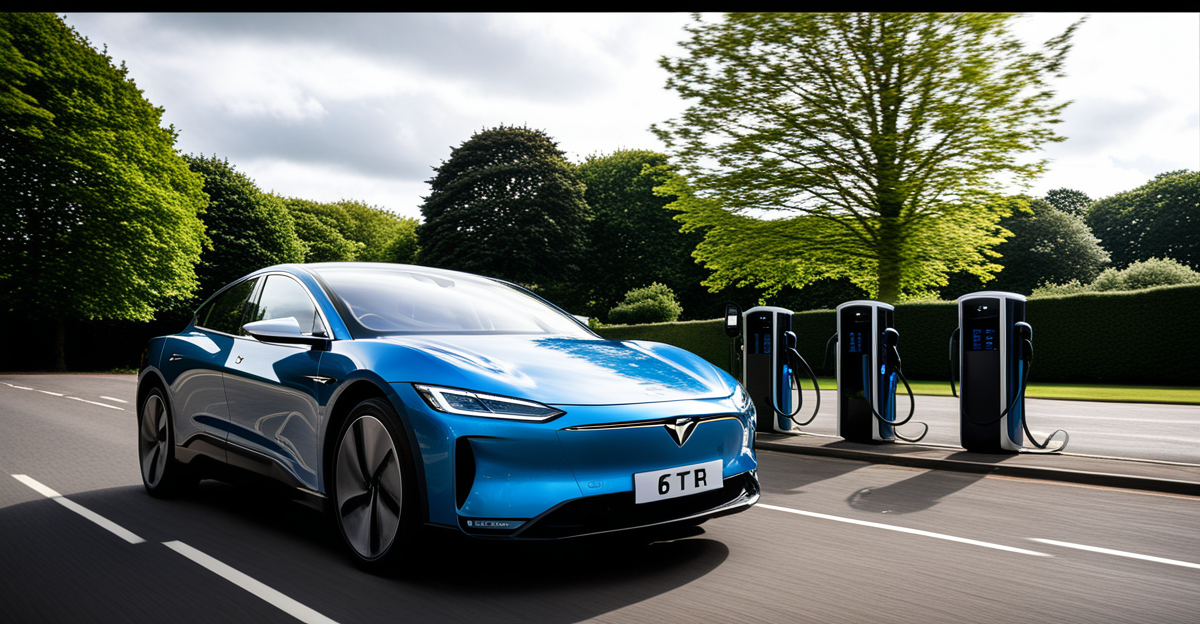Electric Vehicles Driving Transformation in UK Automotive Manufacturing
The impact of EVs on UK manufacturing is significant, reshaping traditional automotive production and supply chains. Unlike combustion engines, electric vehicles require different components, such as batteries and electric motors, which demand new manufacturing techniques and sourcing strategies. This shift compels factories to adapt assembly lines and retrain workforce skills to handle new technologies and materials like lithium-ion cells and lightweight composites.
Adoption of EV production processes involves integrating automated systems for battery pack assembly, increasing precision and efficiency. The UK automotive sector is seeing investments in cutting-edge robotics and quality control mechanisms tailored for EV manufacturing.
This might interest you : What Impact Does the UK’s Growing EV Market Have on Global Automotive Trends?
Several UK manufacturers offer compelling examples of this transition. Companies like Jaguar Land Rover have retooled factories to prioritize electric models, while others forge partnerships with battery suppliers, demonstrating the UK’s commitment to becoming a major player in the EV market. These changes underscore a broader transformation, where traditional car production is evolving rapidly to embrace electrification, boosting innovation and competitiveness within the UK’s automotive industry.
Employment and Workforce Evolution in the EV Era
The rise of electric vehicles (EVs) is reshaping the UK’s automotive jobs landscape. As EV manufacturing demands different skills compared to traditional car production, the workforce transformation is significant. Workers now require expertise in battery technology, electric motor assembly, and high-voltage safety protocols. These new skills are essential for maintaining quality and safety standards in EV production.
Also to read : What innovations are UK automotive startups bringing to the market?
How are new skills integrated? Manufacturers collaborate with training providers and invest in upskilling programs to prepare employees for the evolving automotive sector. Apprenticeships and certification courses focus on electronics and software, areas increasing in importance within EV manufacturing.
What about the effects on traditional jobs? Although some roles tied to internal combustion engines decline, opportunities in EV assembly, battery maintenance, and software development are expanding. This shift encourages career transition and growth rather than job losses.
Government and industry initiatives support this workforce adaptation by funding vocational training and facilitating partnerships between educational institutions and manufacturers. These efforts help the UK maintain its competitive edge and ensure a skilled talent pool vital for ongoing EVs and UK employment growth.
Infrastructure Development and Charging Networks
The rapid expansion of UK EV infrastructure is vital to support the growing electric vehicle market. Increasingly, public and private sectors invest heavily in charging station expansion to meet demand. Fast-charging networks are being rolled out, reducing wait times and making EV usage more convenient across urban and rural areas.
How does collaboration enable this growth? The government partners with industry leaders to coordinate infrastructure installation and align on standards, ensuring seamless charging experiences for users. This cooperation accelerates deployment and helps target underserved regions.
Notable examples highlight the success of these efforts. Retail locations, parking garages, and motorway service areas now feature fast chargers, boosting driver confidence. Private investment complements public funding, creating a robust and scalable charging ecosystem.
These developments address one of the biggest barriers to electric vehicles in the UK—range anxiety—making EVs a practical option for more drivers. The continual enhancement of charging infrastructure fuels consumer adoption and supports the UK’s ambitions in electrifying transport nationwide.
Electric Vehicles Driving Transformation in UK Automotive Manufacturing
The impact of EVs on UK manufacturing extends deeply into production processes and supply chains. Traditional assembly lines adapt to new methods, focusing on precision assembly for electric motors and battery systems. Unlike combustion engines, EVs demand components such as lithium-ion batteries, power electronics, and lightweight materials, requiring manufacturers to source new suppliers and rethink logistics.
The shift also entails adopting automated battery pack assembly, enhancing efficiency and quality control. Automation reduces human error in delicate tasks like cell balancing and module integration, crucial for battery safety and performance.
Several UK manufacturers exemplify this transition vividly. Jaguar Land Rover has reengineered factories to emphasize electric models, increasing vertical integration for battery production. Similarly, Nissan’s Sunderland plant integrates EV-specific assembly lines, reflecting evolving supply chains and production workflows.
These transformations reshape the UK’s automotive sector, driving innovation while strengthening competitiveness. Manufacturers must continuously invest in technology upgrades and workforce retraining to maintain pace. The ongoing evolution confirms that electric vehicles are not merely a product change but a fundamental industrial shift redefining the UK automotive manufacturing landscape.
Electric Vehicles Driving Transformation in UK Automotive Manufacturing
The impact of EVs on UK manufacturing extends beyond vehicle design to fundamentally reshape production processes and supply chains. Unlike traditional cars, electric vehicles UK manufacturing requires new components like lithium-ion batteries, electric motors, and advanced power electronics. This shift forces manufacturers to adopt novel materials, such as lightweight composites, and integrate cutting-edge automation technologies tailored to precision battery pack assembly.
How do production lines adapt? Assembly workflows now focus on complex battery module integration and electric drivetrain assembly, demanding heightened quality control and safety standards. Automated systems reduce errors in these delicate processes, increasing efficiency and consistency.
Leading UK manufacturers exemplify this transformation. Jaguar Land Rover has revamped its factories with EV-centric production lines, while Nissan’s Sunderland plant integrates flexible EV assembly to accommodate evolving demand. These changes highlight not only shifts in automotive sector operations but also the strategic drive toward vertical integration and localized sourcing of EV components.
Such profound change underscores the evolving nature of electric vehicles UK manufacturing, where innovation and adaptation are pivotal. The sector’s continued growth hinges on ongoing investment in new technologies and skills, ensuring the UK remains competitive in the global electric vehicle market.
Electric Vehicles Driving Transformation in UK Automotive Manufacturing
The impact of EVs in the UK automotive sector manifests predominantly through profound shifts in production processes and supply chains. Traditional assembly lines are being overhauled to accommodate the complex integration of electric motors and battery systems, requiring precision and stringent quality controls. This shift is propelled by the need to incorporate new materials such as lithium-ion batteries and lightweight composites, which necessitate bespoke manufacturing practices.
How have manufacturing technologies evolved? Automated assembly for battery packs minimizes human error during cell balancing and module integration, ensuring safer and more reliable energy storage systems. The adoption of these technologies boosts efficiency while meeting elevated safety standards.
Leading manufacturers exemplify this transformation. Jaguar Land Rover has revamped its UK facilities to focus heavily on electric vehicle production, investing in vertical integration for essential components like batteries. Nissan’s Sunderland plant also demonstrates flexibility by integrating EV-specific lines that respond to changing demand and evolving market conditions.
These adjustments underline how electric vehicles UK manufacturing is reshaping the automotive sector changes, emphasizing innovation and adaptability as prerequisites for maintaining global competitiveness.
Electric Vehicles Driving Transformation in UK Automotive Manufacturing
The impact of EVs on UK manufacturing is profound, driving major automotive sector changes. Production processes are shifting from traditional engine assembly to battery and electric motor integration, demanding new precision techniques and stringent quality controls. These adaptations address the unique complexity of lithium-ion battery systems, which require delicate cell balancing and robust module assembly.
New materials such as lightweight composites are now essential, prompting manufacturers to overhaul supply chains and source specialized components. Automation plays a critical role, with advanced robotic systems reducing errors and increasing efficiency in battery pack production. This is vital to meet safety standards and improve overall reliability.
Several UK manufacturers demonstrate this evolution. Jaguar Land Rover has modernised its factories to prioritise electric vehicle UK manufacturing, focusing on vertical integration of battery technologies. Nissan’s Sunderland plant showcases flexible assembly lines that accommodate both electric and hybrid models, reflecting responsive supply chain adjustments.
These initiatives exemplify how the impact of EVs is reshaping the UK’s automotive sector, highlighting innovation, efficiency, and adaptability as key factors driving its ongoing transformation.








